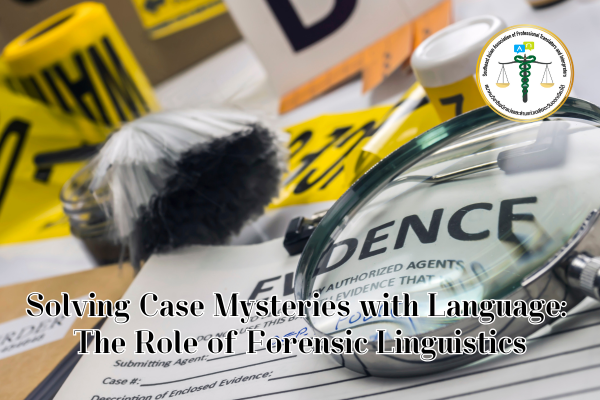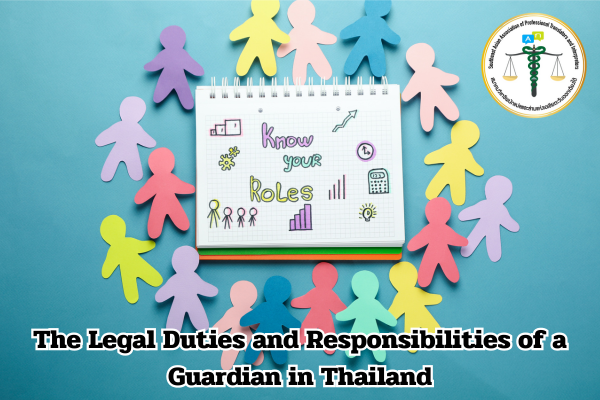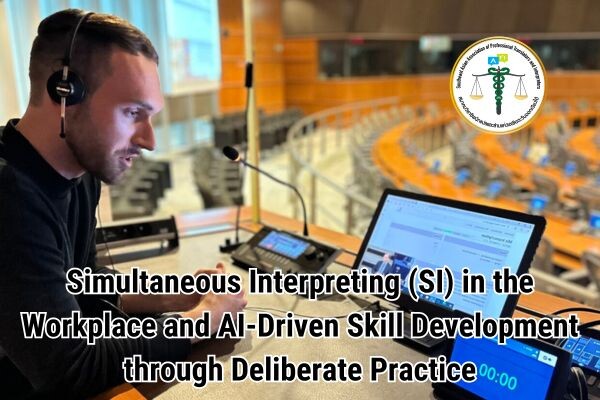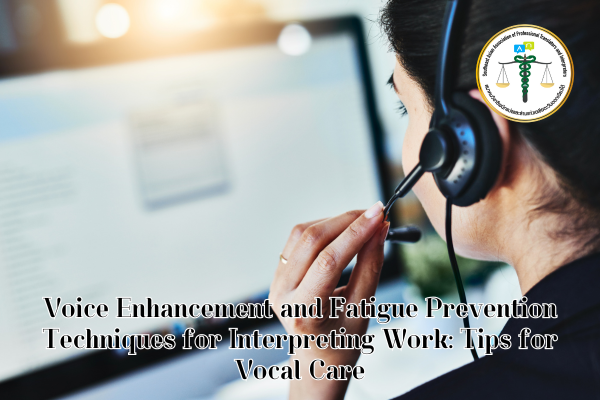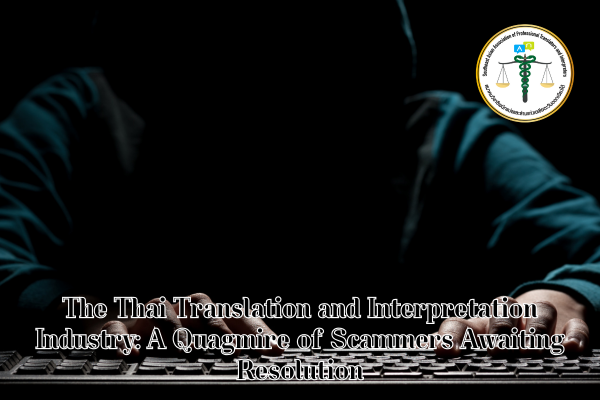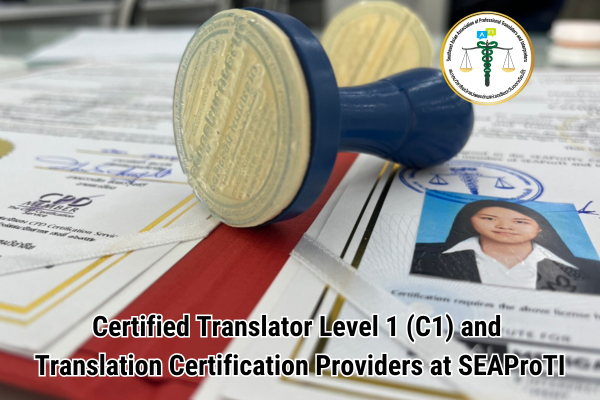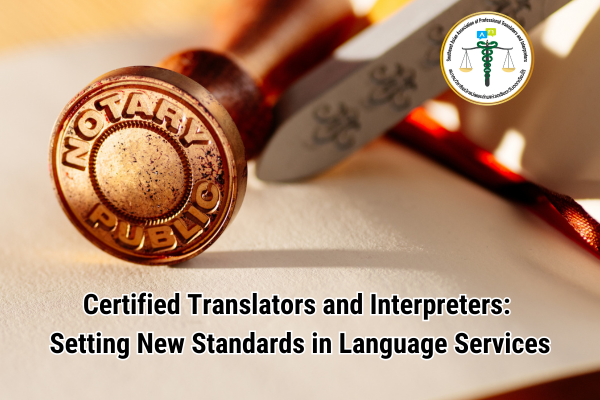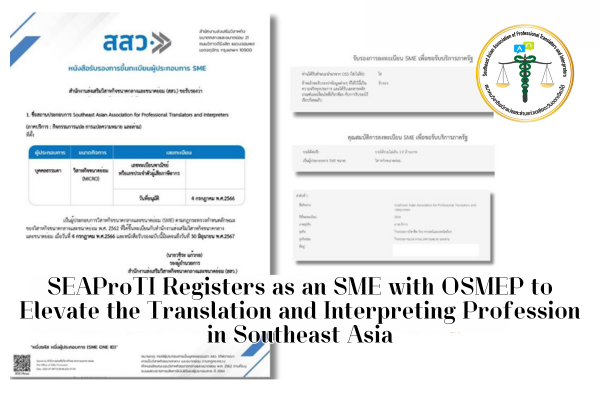30 March 2025, Bangkok – Work in Forensic Linguistics involves applying linguistic knowledge to assist in the justice process or legal investigations. Generally, work in this field covers the following aspects:
- Analysis of Language in Legal Documents
- Examining meaning, ambiguity, or intent in contracts, wills, or other documents to aid dispute interpretation.
- Authorship Attribution
- Analyzing linguistic features such as vocabulary, grammar, or writing style to determine the author of a text, such as threatening letters, emails, or messages in criminal cases.
- Analysis of Statements or Interviews
- Reviewing the language used in the statements of witnesses, suspects, or victims to assess credibility, consistency, or signs of deception.
- Translation and Interpretation of Language in Legal Contexts
- Assisting in translating documents or speech in cases involving multilingual speakers, and analyzing meanings that may differ across cultural or legal contexts.
- Analysis of Language in Defamation or Threat Cases
- Evaluating whether a statement or text intends to defame, threaten, or cause harm under the law.
- Examination of Forgery or Imitation
- Comparing linguistic characteristics to determine if a document has been forged or if someone has imitated another’s writing style.
- Analysis of Tone and Intent in Media
- Analyzing language use in social media, online messages, or other communications to find evidence in cases, such as incitement or terrorism.
- Serving as an Expert Witness in Court
- Forensic linguists may be required to testify in court to explain their analyses and help judges or juries understand linguistic issues.
Forensic Linguistics requires integrating linguistic knowledge (e.g., grammar, semantics, discourse) with an understanding of legal systems and investigative processes. It also demands meticulous analytical skills, as the outcomes can significantly impact case decisions.
SEAProTI’s certified translators, translation certification providers, and certified interpreters:
The Southeast Asian Association of Professional Translators and Interpreters (SEAProTI) has officially announced the criteria and qualifications for individuals to register as “Certified Translators,” “Translation Certification Providers,” and “Certified Interpreters” under the association’s regulations. These guidelines are detailed in Sections 9 and 10 of the Royal Thai Government Gazette, issued by the Secretariat of the Cabinet under the Office of the Prime Minister of the Kingdom of Thailand, dated July 25, 2024, Volume 141, Part 66 Ng, Page 100.
To read the full publication, visit: the Royal Thai Government Gazette
30 มีนาคม 2568, กรุงเทพมหานคร – งานในสาขา Forensic Linguistics หรือ ภาษาศาสตร์นิติวิทยา เกี่ยวข้องกับการประยุกต์ใช้ความรู้ด้านภาษาศาสตร์เพื่อช่วยในกระบวนการยุติธรรมหรือการสืบสวนทางกฎหมาย โดยทั่วไปแล้วงานในสาขานี้จะครอบคลุมประเด็นต่างๆ ดังนี้:
- การวิเคราะห์ภาษาในเอกสารทางกฎหมาย
- ตรวจสอบความหมาย ความคลุมเครือ หรือเจตนาในสัญญา พินัยกรรม หรือเอกสารอื่นๆ เพื่อช่วยตีความในกรณีที่มีข้อพิพาท
- การระบุตัวตนผู้เขียน (Authorship Attribution)
- วิเคราะห์ลักษณะการใช้ภาษา เช่น คำศัพท์ ไวยากรณ์ หรือสไตล์การเขียน เพื่อระบุว่าใครเป็นผู้เขียนข้อความ เช่น จดหมายข่มขู่ อีเมล หรือข้อความในคดีอาญา
- การวิเคราะห์คำให้การหรือการสัมภาษณ์
- ตรวจสอบภาษาที่ใช้ในคำให้การของพยาน ผู้ต้องสงสัย หรือผู้เสียหาย เพื่อดูความน่าเชื่อถือ ความสอดคล้อง หรือสัญญาณของการโกหก
- การแปลและตีความภาษาในบริบทกฎหมาย
- ช่วยแปลเอกสารหรือคำพูดในคดีที่มีผู้พูดหลายภาษา และวิเคราะห์ความหมายที่อาจแตกต่างกันในบริบทวัฒนธรรมหรือกฎหมาย
- การวิเคราะห์ภาษาในคดีหมิ่นประมาทหรือข่มขู่
- ประเมินว่าข้อความหรือคำพูดใดๆ มีเจตนาหมิ่นประมาท คุกคาม หรือก่อให้เกิดความเสียหายตามกฎหมายหรือไม่
- การตรวจสอบการปลอมแปลงหรือการเลียนแบบ
- เปรียบเทียบลักษณะภาษาเพื่อดูว่ามีการปลอมแปลงเอกสารหรือเลียนแบบสไตล์การเขียนของผู้อื่นหรือไม่
- การวิเคราะห์น้ำเสียงและเจตนาในสื่อ
- วิเคราะห์การใช้ภาษาในสื่อโซเชียล ข้อความออนไลน์ หรือการสื่อสารอื่นๆ เพื่อหาหลักฐานในคดี เช่น การยุยงปลุกปั่น หรือการก่อการร้าย
- การเป็นพยานผู้เชี่ยวชาญในศาล
- นักภาษาศาสตร์นิติวิทยาอาจต้องขึ้นให้การในศาลเพื่ออธิบายผลการวิเคราะห์และช่วยให้ผู้พิพากษาหรือคณะลูกขุนเข้าใจประเด็นทางภาษา
โดยทั่วไป Forensic Linguistics จะต้องผสมผสานความรู้ด้านภาษาศาสตร์ (เช่น ไวยากรณ์ ความหมาย วาทกรรม) เข้ากับความเข้าใจในระบบกฎหมายและการสืบสวน นอกจากนี้ยังต้องใช้ทักษะการวิเคราะห์อย่างละเอียดรอบคอบ เพราะผลลัพธ์อาจมีผลกระทบต่อการตัดสินคดีได้
เกี่ยวกับนักแปลรับรอง ผู้รับรองการแปล และล่ามรับรองของสมาคมวิชาชีพนักแปลและล่ามแห่งเอเชียตะวันออกเฉียงใต้
สมาคมวิชาชีพนักแปลและล่ามแห่งเอเชียตะวันออกเฉียงใต้ (SEAProTI) ได้ประกาศหลักเกณฑ์และคุณสมบัติผู้ที่ขึ้นทะเบียนเป็น “นักแปลรับรอง (Certified Translators) และผู้รับรองการแปล (Translation Certification Providers) และล่ามรับรอง (Certified Interpreters)” ของสมาคม หมวดที่ 9 และหมวดที่ 10 ในราชกิจจานุเบกษา ของสำนักเลขาธิการคณะรัฐมนตรี ในสำนักนายกรัฐมนตรี แห่งราชอาณาจักรไทย ลงวันที่ 25 ก.ค. 2567 เล่มที่ 141 ตอนที่ 66 ง หน้า 100 อ่านฉบับเต็มได้ที่: นักแปลรับรอง ผู้รับรองการแปล และล่ามรับรอง


